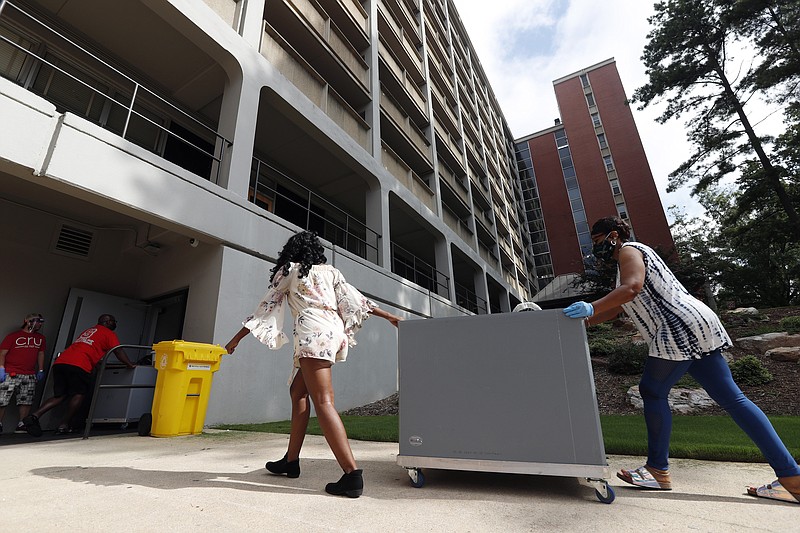The U.S. Census Bureau could be forced to delay even further the release of redistricting data used for drawing congressional and legislative districts if it's ordered to disclose more records in response to a lawsuit, the agency's chief scientist said in court papers this week.
The redistricting data is set to be made public by the middle of next month. That could be postponed by as much as six additional months, however, if the statistical agency is ordered to release more records dealing with how it counted people living in what it refers to as "group quarters," Census Bureau Chief Scientist John Abowd said in a declaration.
The bureau designates group quarters as dormitories, prisons, nursing homes and group homes.
The release of the redistricting data already was postponed by five months from its original March 31 deadline because of delays caused by the coronavirus pandemic, sending states scrambling to revise redistricting deadlines. Two states, Ohio and Alabama, sued the Census Bureau in an unsuccessful effort to get it to release the data before August.
"The effect on the schedule for delivering redistricting data would likely be substantial," Abowd said of any potential order to disclose further group quarter records.
The Republican advocacy group, Fair Lines America Foundation, sued the Census Bureau in a public records lawsuit for information about how the census count was conducted in group quarters. The group said it's concerned about the accuracy of that count and wants to make sure anomalies didn't affect the state population figures used for divvying up congressional seats among the states.
The group facilities were among the most difficult places to count people during the 2020 census because the pandemic forced colleges to shutter dorms and send students home, and nursing homes and other facilities restricted access in an effort to protect vulnerable residents from the virus.
Abowd said that if the Census Bureau is required to release additional records as part of the Fair Lines lawsuit it will need as much as six months to recalibrate a new statistical tool meant to protect people's privacy so they can't be identified through the data.
Delaying the release of the redistricting data past Aug. 16 could get the Census Bureau in trouble with a federal court in Ohio. As part of a settlement of the state of Ohio's lawsuit, the Census Bureau promised to release the redistricting data no later than Aug. 16.
The privacy method adds calibrated error to the data, most noticeably at small geographic levels such as neighborhood blocks, in order to prevent people being identified by high- powered computers through matches with third-party data such as voting records or credit card data.
Because of the privacy method, data at the neighborhood block-level may look "fuzzy," with weird situations such as blocks showing children living with no adults or the number of people not matching the number of housing units in a block, acting Census Bureau director Ron Jarmin said Wednesday in a blog post.
Jarmin said that blocks should be added together to produce accurate results.
"Though unusual, situations like these in the data help confirm that confidentiality is being protected," Jarmin said.

